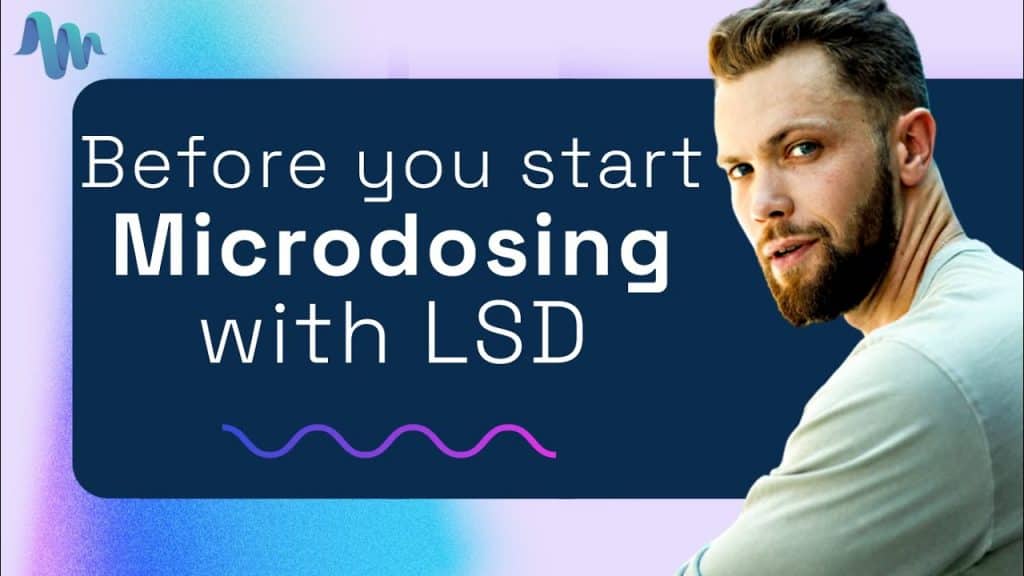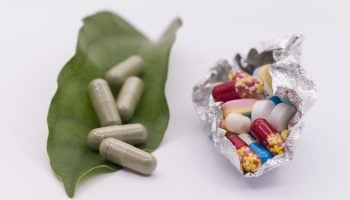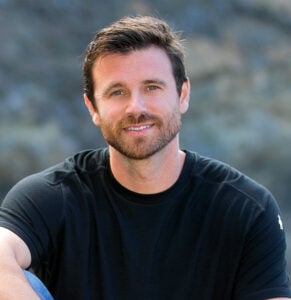
Microdosing has become something of a paradox for the psychedelic community.
It is at once perhaps the biggest hope for the integration of psychedelics into mainstream society, yet at the same time threatens to capsize the Third Wave psychedelic movement before it has reached criticality.
The reported benefits of microdosing, across vast demographics of people, have catalyzed a surge of interest and optimism from many in the psychedelic community. Taking semi-regular, deliberately-tiny doses of LSD and psilocybin mushrooms seems to have great potential; both in the treatment of mental health conditions, and in the fostering of improved work practices, in everyone from artists to executives.
But unsettling the sails of the good ship Psychedelia is an approaching storm – the same storm that shut down the counterculture movement of the 1960s and ‘70s.
That Second Wave of psychedelics was ultimately sabotaged by its own exuberance, by its eagerness to spread the message of love and togetherness that so starkly contrasted the post-war zeitgeist. The hippie and new age cultures were an easy target for a Nixon government that rightfully saw their consciousness-expanding manifesto as a threat to the exploitative and divisive institution of U.S. politics.
Now we are exposed to the same threat. The excitement upon discovering the healing and spiritual potential of these medicines, now backed up by myriad scientific studies, is poised to spread beyond control. The same type of establishment that shut down the counterculture of the ‘60s could bring a premature end to the Third Wave of psychedelics. Many critics are actively looking to de-legitimize this movement in any way possible.
So how do we move forward?
We must be cautious of falling into unrestrained optimism. We must admit that we don’t know everything about psychedelics. If we don’t own up to the gaps in our knowledge, our movement will easily lose its foothold.
This is especially pertinent when it comes to microdosing, as clinical research of this psychedelic subculture is only in its infancy. Despite tens of thousands worldwide enjoying the practice with very few reported drawbacks, there have been no rigorous studies on the long-term effects of taking low-doses of psychedelics over the course of many months or years.
It’s entirely possible that microdosing could have hidden harms. And if we unreservedly promote microdosing as a totally safe, tried-and-tested activity, it might only be a matter of time until someone gets hurt, and our movement loses a big chunk of credibility.
With that in mind – what do we really know about the long-term dangers and risks of microdosing?
The physiological risks of microdosing
Generally speaking, the classic psychedelics (LSD, psilocybin mushrooms and DMT) are some of the safest molecules on the planet. Compared to the other commonly used drugs, experts rank psychedelics among the very safest (as well as safer than legal substances like alcohol and tobacco).
Unlike other commonly-used substances, the classic psychedelics do not activate the typical signalling systems associated with addiction. Physiological addiction has not been observed in users of LSD or psilocybin mushrooms.
In terms of the direct effects of these substances on the body, there is very low physical risk. Even ingesting milligrams of LSD (thousands of times a normal dose) isn’t fatal. A typical recreational dose is extremely unlikely to do any physiological damage.
The main physiological concern with microdosing is that we don’t know what frequent low doses will do to your body. Introducing any substance to your system in a chronic fashion will undoubtedly cause changes to your physiology. Some of those changes could be damaging.
We know that frequent, high-doses of MDMA can cause valvular heart disease. MDMA is a substance that is often thrown under the “psychedelic umbrella,” despite it working through different pharmacological mechanisms. However, MDMA’s heart risk is associated with its activation of the 5-HT2B receptor; which is also activated by LSD and psilocybin mushrooms.
The big question we’re left with is, “Does psychedelic microdosing cause damage to the heart over long periods of time?” While the current evidence does not give us particular cause for concern, it’s certainly a possibility that microdosing for long periods of time (say, more than a few months) could start to have a cumulative effect on cardiovascular health.
Therefore, until we can be certain about the long-term physiological effects of microdosing, it’s safest to avoid microdosing for longer than three months at a time – and avoid promoting long-term microdosing regimens to newcomers without mentioning this risk.
The psychological risks of microdosing
As microdosing involves deliberately tiny quantities of psychedelics, it does not carry the usual psychological risks of a large-dose psychedelic experience. Microdosing, if performed correctly, will not drastically change your state of mind in the same way as a macrodose. It’s unlikely, for example, that microdosing will induce the compulsion to run around outside with no clothes on.
However, consistently taking small doses of any powerful hallucinogen can potentially impact your psychology in negative ways – it’s important to be mindful of the following risks:
Psychological Addiction
Despite the classic psychedelics not having physiologically addictive properties, it’s possible to become psychologically addicted to any behavior.
Since microdosing is an activity that, in many people, results in states of heightened awareness and well-being, it’s absolutely possible to become infatuated with the practice.
It’s important for microdosers to be aware of this risk. Ideally, we should view microdosing as a temporary activity that can highlight changes we can make in our lives – ultimately allowing us to be independent of substances in maintaining a healthy, happy existence.
Our extensive microdosing course can help you avoid falling into the trap of psychological dependence by providing you with resources that allow you to build lifestyle changes into your microdosing regimen.
Mania
One concern that is often raised among microdosers is the fact that microdosing can raise anxiety levels in some people – sometimes to the point of affecting sleep patterns and digestion.
It’s often observed that higher “recreational” doses of psychedelics can induce cases of mania or temporary psychosis. It’s possible that microdosing can induce similar episodes of anxiety in people who are sensitive to this facet of psychedelic effects.
In most cases, transient anxiety can be solved by reducing the dose in a microdosing regimen. Additionally, we don’t recommend microdosing at all if you suffer from schizophrenia, psychosis or anxiety disorders. If you have issues such as these, and decide you’d like to microdose anyway, make sure to start on very low doses and keep careful track of your progress.
Keeping the ship on course
Being aware of the risks is just the first step in promoting a responsible and credible psychedelic movement. For us to really integrate psychedelics with mainstream society, we need to promote sensible and evidence-based behaviors.
Until the safety of microdosing is confirmed by clinical research, we need to exercise caution, and make clear that microdosing carries potential risk.
Condoning responsible behavior will be a foundation of the success of the Third Wave of psychedelics – it’s up to all of us to keep this ship on course.
To learn more about how to use psychedelics safely and responsibly, sign up to our microdosing course and gain access to in-depth resources and a community of like-minded psychonauts!







I did a lot of shrooms & LSD over a 10 year period back in the 1970-80s, then studied medicine for 25 years. It is good to see you know clinical studies must be done to determine the side affects. Yet this will take years to accumulate enough data to draw conclusions…..
What you will find out is, like with any stress or drug introduced to a human, individual susceptibility is a big part of their response. What studies will show is different people have little or no side affects and function at a high rate, are happy and healthy. Others will have side affects such as nerve damage which you failed to mention, yet is a known side affect of long term use. Also some people can smoke pot just 1-2 times or do LSD and they can have side affects for many years so again it is a lot about individual susceptibility.
Also what may be fine for a certain age group may not be fine for others. For example at the age of 45 is the average when people start producing less cells than they lose. That’s why many people get reading glasses near the age of 45. So this would be another consideration. Also Family history of what people tend to die of, cancer vs. strokes and heart attacks. I think before anyone starts using they should discuss their interest with a licensed medical doctor. I like Naturopathic doctors as they are more holistic and take the same classes as an MD but treat with different meds. Look forward to hearing more on your site!
Really amazing. I will spread the message.
Very important information.
Raymond
I’ve been microdosing acid for a few months now, and there have been positive effects, however, there also have been unpleasant, though not particularly worrying, side-effects: frequent: nausea and very infrequent: vertigo.
Particularly the infrequent vertigo is something that I’d like to warn about, because it makes it very unsafe for operating vehicles.
These sensations have occurred within hours after ingesting a dose and have not lasted more than 24 hours, in each case.
“Naturopathy or naturopathic medicine is a form of alternative medicine that employs an array of pseudoscientific practices branded as “natural”, “non-invasive”, and as promoting “self-healing”. The ideology and methods of naturopathy are based on vitalism and folk medicine, rather than evidence-based medicine”
Stick to the facts
I have a shoulder injury that has taken longer then expected to heal. (Way over a year with no tear detected). Wondering if micro dosing could be a source of preventing ligaments and muscles to heal. There has been mention of effects on the heart. Can it affect other muscles in the body?
I have been microdosing for a short period. Actually I have only taken three doses. I left two days between the first two but the third was taken the day after the second. The first two did everything I had hoped but the third, which I took this morning, has affected me strangely. About two hours after taking the dose I left for university but after getting on the bus I began to feel very anxious so I got off and walked to the train station to try and shake it of but felt unable to get on the train for fear of freaking out and having no way to get off, so I walked back home. It has been about four hours since I took the dose and I do feel myself calming down but I am worried that I will react that way to public transport from now on, as I do know people who have been affected by lsd in that way. I wonder, has anybody had a similar experience and how did it turn out?
Personally I think taking a few hits of lsd in your life time will expand your mind and will stick with you for a life time. I think microdosing it is a little bit crazy really, it’s going to chemically change your reality, you will be that much more out of tune with your peers and potentially not be able to comprehend the collective conciousness when you stop. I think its a very dangerous game to play with your mind, remember yoy have one mind and if you lose it, you might not get it back. Think positively but critically eat well sleep well, create what you can and learn everyday! You don’t need drugs everything you need to change is within you.
Without even advocating the use of drugs, I think it’s important to think objectively, sometimes people need support such as vitamins etc to improve immune system functioning, it’s very much a similar concept. For some people that ability to change mindset and improve requires something external to have a positive internal effect, be that therapy or psilocybin. To talk subjectively, there is nothing wrong with that, as long as it doesn’t progress to psychological dependence or come as a detriment to the user.
Another element to which I have not read any others speak to is their spiritual foundation.. i think this plays a huge part into any sort of benefit taken away from the use of a psychedelic substance. If using recreational as opposed to medicinally or spiritually for healing of major trauma, then the brain already is being programmed in a sense to either assist or desist in healing. Considering the daily abuse to our bodies/minds/spirits that a huge portion of society is subject to (eating Mcdonalds, watching the news, breathing carcinogens by automobiles/machines or the radiation we’re constantly exposed to by the grand assortment of electronic gadgetry we love so dearly), the usage of micro-dosing seems minuscule as far as the dangers our society exposes us to everyday.. I suppose it’s up to the specific soul and how they view healing their selves. Mother earth can’t be wrong… it’s human greed that makes it dangerous!! Cheers and great info. Be safe in your journey.s
I’ve been microdosing LSD for about three months. The other night I shared a joint (grass) at a friend’s house and afterwards felt stangely dizzy. I went home soon after and while sitting in the kitchen, I felt like my heart was racing. I have an app on my phone to check my heart rate, and it was 83 bpm (my usual reading is 59 bpm). I went upstairs to get my wife and before I could tell her anything I felt am unpleasant rush inside me like there was something trying to pull me out of my body. It only lasted a few seconds, but felt worrying. Over the next two hours I was subjected to a relentless amount of these episodes, which lasted between five and ten minutes. While there was no pain, my heart raced, and whatever the mounting dizzy spells were building to, it felt incredibly intense and terribly unpleasant. My friend, whose house I’d been at, arrived with a couple of Xanax. I don’t usually take Xanax or Valium, but they took the experience right down to size, and eventually I could sleep. The baseline dizziness stayed with me throughout the following day, and even today I feel whispers of it, but I feel like it’s on the way to exiting my system completely. I’ve stopped microdosing as a result. I’m not sure if it was vertigo or something else, but it was certainly the strangest inner experience I’ve ever had.
For the three months I was microdosing, I didn’t really experience any great benefits. It possibly improved my mood moderately. My creative ability remained the same. And I can’t really report any other significant findings, other than it was nice to feel the suggestion of a rush every third day.
The feelings you described look like panic attacks to me. I had very similar episodes and recurrences of that recently myself. I wasn’t on any drugs at the moment or anytime close, and it was caused by a day full of watching anxiety-provoking youtube videos and then overthinking about my mental health, which is ironic. The recurrences were pretty much the same thing: “being afraid of being afraid”; what if it happens again? And it just did. But looking up info on panic attacks and talking about it to some people on Discord really helped (I’d say to the point of going away altogether). The key point for me was the realization that many people have it, it usually goes away with a few sessions of therapy, and even when it happens, everything is going to be okay anyway. Hope this helps.